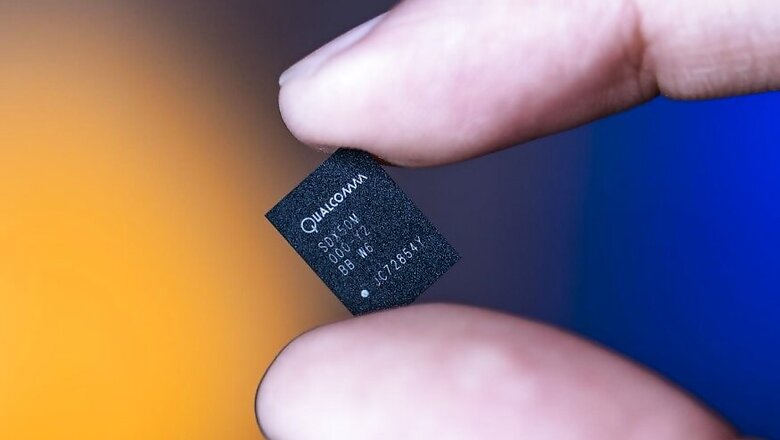
views
Apple wanted to use Qualcomm’s modems for its latest line-up of iPhones but couldn’t. This has been revealed as part of the ongoing US Federal Trade Commission's trial against Qualcomm. Apple had to instead use Intel’s modems for the iPhone XS, iPhone XS Max and the iPhone XR.
“In the end they would not support us or sell us chips," said Jeff Williams, Chief Operating Officer, Apple, during his testimony to the US FTC. Williams went on to clarify that Apple wanted to split the order between Qualcomm and Intel, but after Qualcomm’s refusal, they had to rely solely on the Intel hardware across the entire new iPhone line-up. That said, Qualcomm continues to provide modems for some older iPhones.
Williams also mentioned that Apple paid Qualcomm royalties to the tune of $7.50 per iPhone. The FTC trial which kicked off earlier this month, is based on what are considered to be monopolistic business practices by Qualcomm, particularly around licensing fees.
Apple continues to make its own processor for the iPhone, the A12 Bionic being the latest in the line and powers the current iPhone XS, iPhone XS Max and the iPhone XR. However, Apple continues to rely on third-party chip makers for hardware that enables network connectivity in iPhones. It was in 2016 when Apple started splitting the chip orders between Intel and Qualcomm, with the launch of the iPhone 7 Plus and the iPhone 7.
Incidentally, this contradicts the testimony made by Qualcomm chief executive officer Steven Mollenkopf, who had suggested that Qualcomm was still trying to win the business from Apple.
The bigger problem for Apple could perhaps be about the next line-up of iPhones. If Apple continues to depend on just Intel modems for its 2019 line-up of iPhones, expected in September this year, then it’ll fall behind the curve. They will be able to use the Snapdragon X50 modem to enable 5G connectivity in smartphones. Android phone makers, relying on Qualcomm, will be able to roll out 5G phones this year. However, Intel’s 5G chips aren’t expected to be released until next year. In the tough battle against Android flagships, this could put the iPhones at a serious disadvantage.
Also Read | Did Qualcomm Really Give Samsung The Generous Offer of Suing Them Last?




















Comments
0 comment